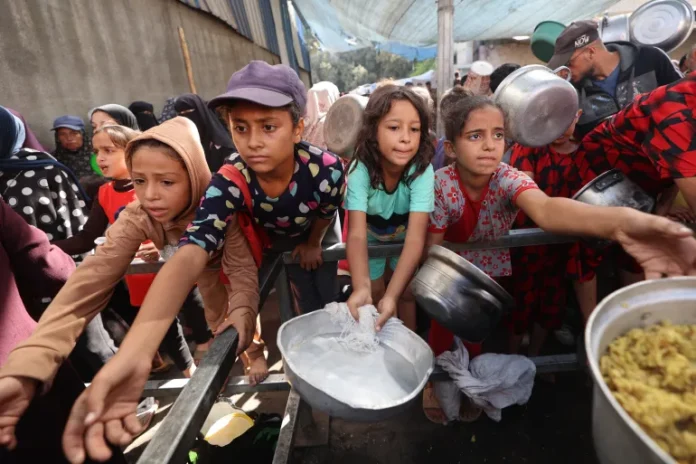
A United Nations report has accused Turkey, along with several Western and regional powers, of enabling Israel’s genocide in Gaza through continued trade, military cooperation, and diplomatic actions that violate international law.
According to journalist Bünyamin Tekin from Turkish Minute, the report, titled “Gaza Genocide: a collective crime,” was presented on October 20 to the UN General Assembly by Francesca Albanese, the special rapporteur on the situation of human rights in the Palestinian territories occupied since 1967. It concludes that the destruction of Gaza constitutes a “collective international crime” sustained by the complicity of third states that provided Israel with weapons, intelligence, diplomatic cover and economic partnerships despite mounting evidence of genocide.
“The ongoing genocide in Gaza is a collective crime,” the report states, accusing influential governments of “direct support, material aid, diplomatic protection and, in some cases, active participation.” It warns that global peace and security now rest “on a knife-edge between the collapse of international law and hope for renewal.”
Albanese identifies four channels of complicity — diplomatic, military, economic and humanitarian — arguing that each has been “indispensable” to Israel’s continued campaign in Gaza. The report criticizes Western states, particularly the United States and European Union members, for blocking ceasefire resolutions, supplying weapons and funding reconstruction efforts that serve as “performative gestures” while the assault continues.
Turkey is listed among seven countries that have downgraded diplomatic ties with Israel since October 2023, yet the report says Ankara’s actions have not matched its rhetoric. It cites trade data showing continued oil shipments and trans-shipments from Turkish ports to Israel through intermediaries despite an official trade suspension announced in May 2024.
Through late 2024, reporters and activists documented practices that appeared to cancel the ban’s effect. These included routing shipments through third countries or recording exports as destined for Palestinian territories while cargo moved through Israeli ports. By May 2025 UN data still placed Turkey among Israel’s top suppliers for 2024.
Oil flows drew special scrutiny. An investigation by the Stop Fueling Genocide campaign, covered by Turkish and international media, tracked at least 10 crude shipments from the Ceyhan terminal to Israel during 2024, most after the embargo announcement, with vessels reportedly switching off tracking at sea.
Turkey collects $1.27 per barrel of oil transported through the Baku-Tbilisi-Ceyhan (BTC) pipeline, which is known to supply around 40 percent of Israel’s annual crude oil consumption.
Turkish activists staged port protests against Israel-linked shipping in late 2024 and into 2025, calling for real enforcement rather than announcements. International campaigns focused on fuel flows and port access added to that pressure.
According to the report, Turkey’s 1996 free trade agreement with Israel “conditions cooperation on respect of public policy, morality, international peace, and
security,” which enables Turkey to cut trade citing Israeli actions in Gaza.
While the Turkish government declared the embargo in response to public outrage over Israel’s actions in Gaza, the report says “some trade has reportedly continued indirectly.”
The report underlines the flow of dual-use items to Israel that can be used for civilian purposes but could also be used to support Israel’s military capacity.
The special rapporteur urges all states to implement a comprehensive arms and trade embargo against Israel, suspend diplomatic relations until compliance with international law and hold corporations accountable for aiding or financing the war effort. The report compares the current international response to the global campaign that helped dismantle apartheid in South Africa.
The report also names the United States, Germany, Italy, the United Kingdom, Egypt and Qatar among states whose political or economic ties have enabled Israel’s military operations. Arab and Muslim countries, including Turkey, are faulted for endorsing recent diplomatic initiatives such as the 20-point peace plan proposed by US President Donald Trump that fail to guarantee Palestinian self-determination or accountability for war crimes.
The special rapporteur concludes that without foreign support “the prolonged unlawful Israeli occupation, which has now escalated into a full-fledged genocide, could not have been sustained.” Her report calls the situation “a live-streamed atrocity” that exposes “an unprecedented chasm between peoples and their governments.”
The report follows growing legal findings of genocide. Since October 2023 UN experts, rights groups and courts have warned that Israel’s siege, bombardment and forced displacement of Palestinians in Gaza meet the definition of genocide.
The International Court of Justice has issued three sets of provisional measures ordering Israel to prevent genocide, allow aid and halt operations in Rafah. Amnesty International and Human Rights Watch concluded in December 2024 that Israel was committing genocide. Israeli groups B’Tselem and Physicians for Human Rights-Israel documented systematic attacks on hospitals and denial of medical aid in 2025, and they also said Israeli authorities are committing genocide in Gaza.
On August 31 the International Association of Genocide Scholars passed a resolution saying Israeli actions meet the legal definition of genocide. On September 16 a UN Commission of Inquiry concluded that Israel committed genocide in Gaza, citing killings, conditions of life calculated to bring destruction and statements by senior Israeli officials.
Since the Gaza ceasefire took effect on October 10, the UN’s Office for the Coordination of Humanitarian Affairs (OCHA) recorded 68 Palestinians killed and 328 injured, and Gaza’s media office separately alleged at least 47 ceasefire violations by Israeli forces with 38 killed and 143 injured as of October 18.
OCHA’s October 9 update cites 67,173 Palestinians killed and 169,780 injured from October 7, 2023, to October 7, 2025, based on Gaza’s Ministry of Health data. UN agencies also note cumulative internal displacement affecting roughly 1.9 million people at various points since 2023.














